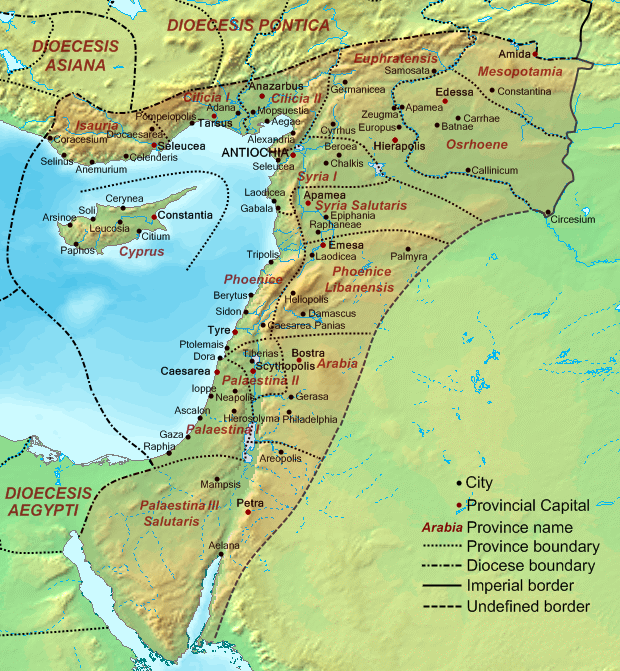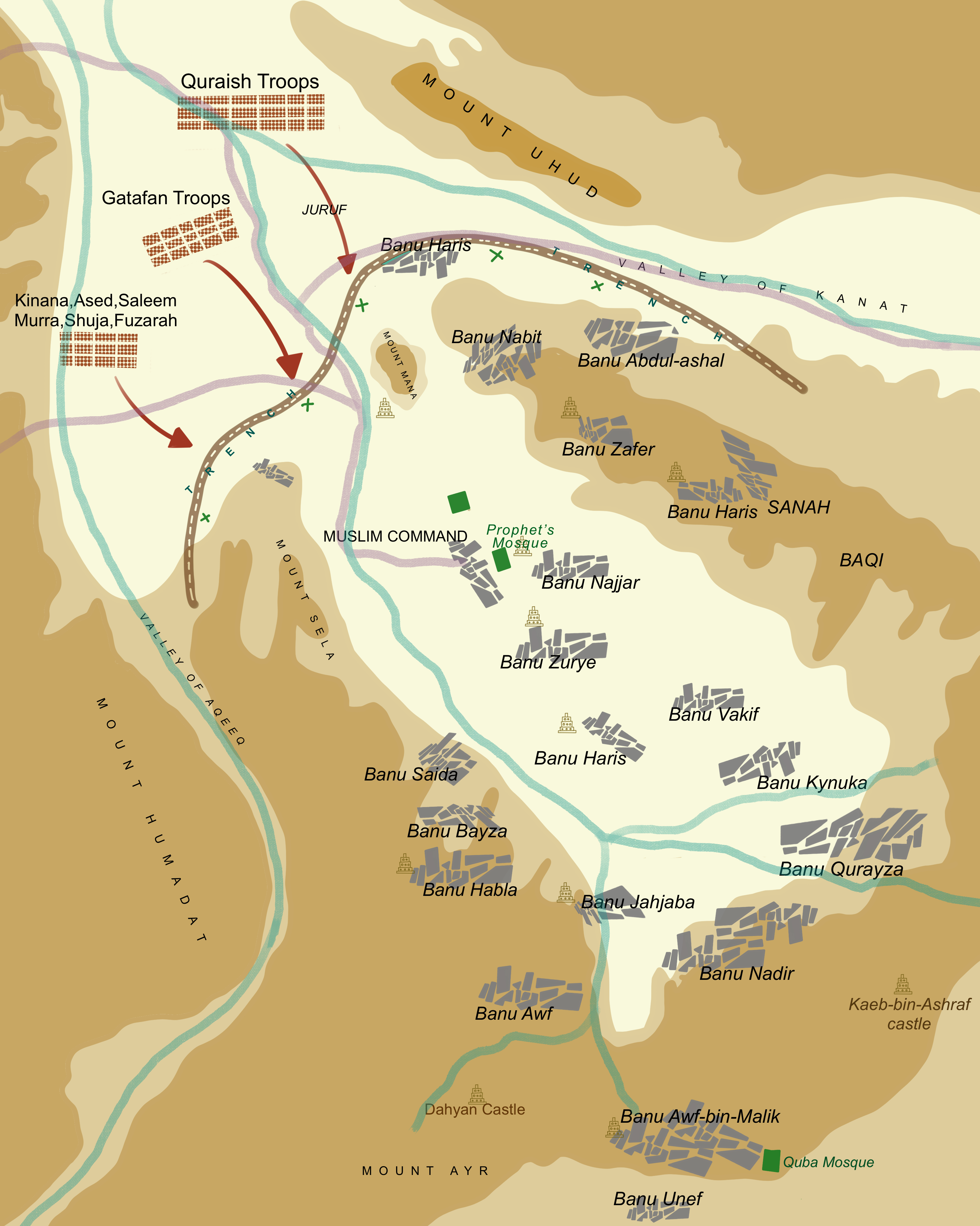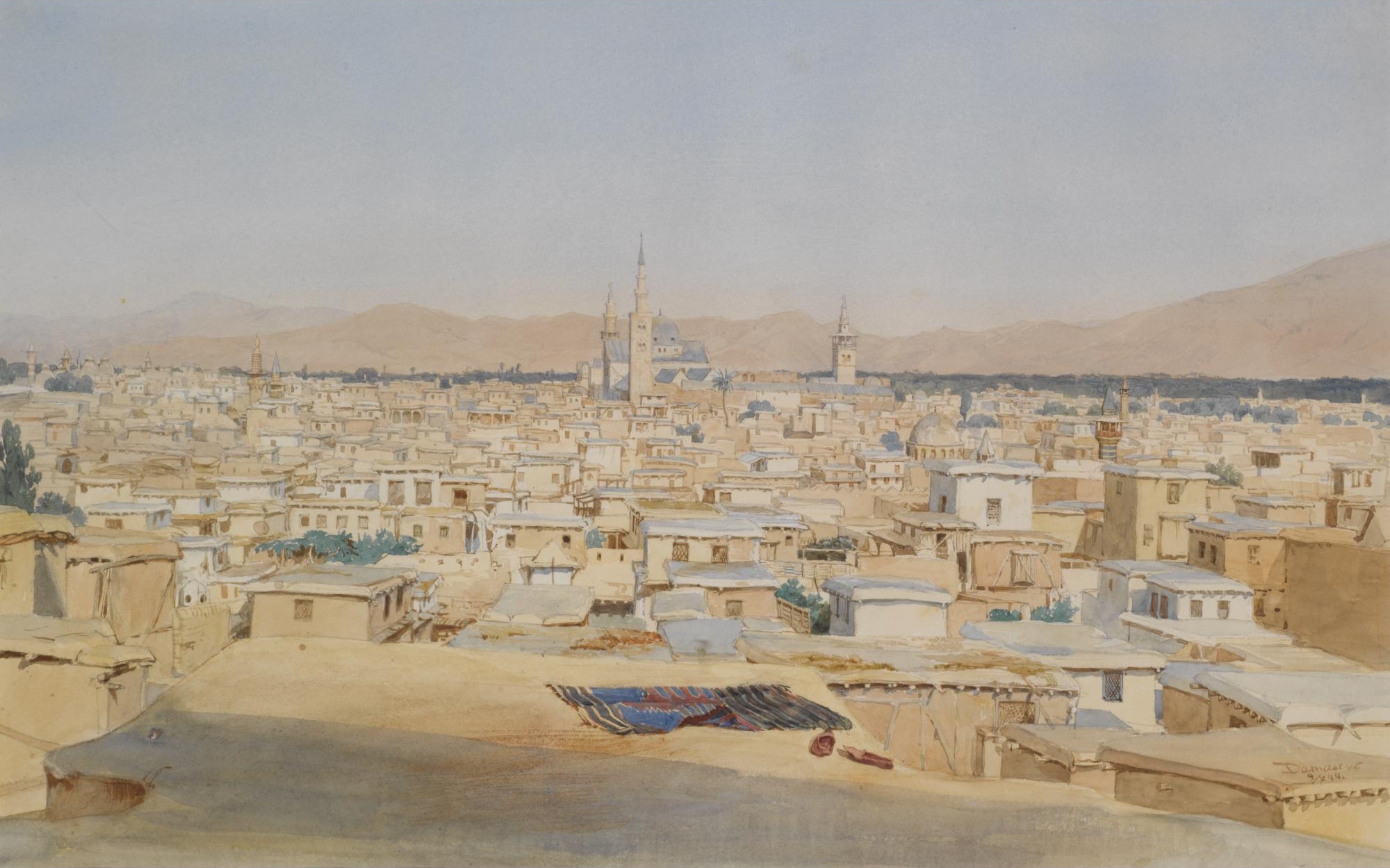|
Ibn Zubayr
Abd Allah ibn al-Zubayr ibn al-Awwam (; May 624October/November 692) was the leader of a caliphate based in Mecca that rivaled the Umayyads from 683 until his death. The son of al-Zubayr ibn al-Awwam and Asma bint Abi Bakr, and grandson of the first caliph Abu Bakr, Ibn al-Zubayr belonged to the Quraysh, the leading tribe of the nascent Muslim community, and was the first child born to the Muhajirun, Islam's earliest converts. As a youth, he participated in the early Muslim conquests alongside his father in Syria and Egypt, and later played a role in the Muslim conquests of North Africa and northern Iran in 647 and 650, respectively. During the First Fitna, he fought on the side of his aunt A'isha against Caliph Ali (). Though little is heard of Ibn al-Zubayr during the subsequent reign of the first Umayyad caliph Mu'awiya I (), it was known that he opposed the latter's designation of his son, Yazid I, as his successor. Ibn al-Zubayr, along with many of the Quraysh and the ... [...More Info...] [...Related Items...] OR: [Wikipedia] [Google] [Baidu] |
Arab–Sasanian Coinage
Arab–Sasanian coinage is a modern term used to describe Islamic coinage struck in the style of the Sasanian coins, coinage of the Iranian peoples, Iranian Sasanian Empire (224–651) after the Muslim conquest of Persia, on behalf of the Muslim governors of the early Islamic caliphates (7th–8th centuries). These coins, mostly silver dirhams but also copper coins, were struck in the historic Sasanian lands of Iraq and Iran, and continued to show the portrait of a bust of a Sasanian emperor as well as other non-Islamic motifs of Sasanian coins, alongside Arabic inscriptions. See also * Indo-Sasanian coinage * Sasanian coinage of Sindh References Literature * * * * {{DEFAULTSORT:Arab-Sasanian coinage Rashidun Caliphate Numismatics Government of the Sasanian Empire Coins of the medieval Islamic world Government of the Abbasid Caliphate Government of the Umayyad Caliphate ... [...More Info...] [...Related Items...] OR: [Wikipedia] [Google] [Baidu] |
Bilad Al-Sham
Bilad al-Sham (), often referred to as Islamic Syria or simply Syria in English-language sources, was a province of the Rashidun, Umayyad, Abbasid, and Fatimid caliphates. It roughly corresponded with the Byzantine Diocese of the East, conquered by the Muslims in 634–647. Under the Umayyads (661–750), Bilad al-Sham was the metropolitan province of the Caliphate and different localities throughout the province served as the seats of the Umayyad caliphs and princes. Bilad al-Sham was first organized into the four '' ajnad'' (military districts; singular ''jund'') of Dimashq (Damascus), Hims (Homs), al-Urdunn (Jordan), and Filastin (Palestine), between 637 and 640 by Caliph Umar following the Muslim conquest. The ''jund'' of Qinnasrin was created out of the northern part of Hims by caliphs Mu'awiya I () or Yazid I (). The Jazira (Upper Mesopotamia) was made an independent province from the Mesopotamian part of Qinnasrin by Caliph Abd al-Malik in 692. In 786, the ''j ... [...More Info...] [...Related Items...] OR: [Wikipedia] [Google] [Baidu] |
Early Muslim Conquests
The early Muslim conquests or early Islamic conquests (), also known as the Arab conquests, were initiated in the 7th century by Muhammad, the founder of Islam. He established the first Islamic state in Medina, Arabian Peninsula, Arabia that expanded rapidly under the Rashidun Caliphate and the Umayyad Caliphate, culminating in Muslim rule being established on three continents (Asia, Africa, and Europe) over the next century. According to historian James Buchan: "In speed and extent, the first Arab conquests were matched only by those of Alexander the Great, and they were more lasting." At their height, the territory that was conquered by the Arab Muslims stretched from Iberian Peninsula, Iberia (at the Pyrenees) in the west to Indian subcontinent, India (at Sind (caliphal province), Sind) in the east; Muslim control spanned Sicily, most of the Middle East and North Africa, and the Caucasus and Central Asia. Among other drastic changes, the early Muslim conquests brought about ... [...More Info...] [...Related Items...] OR: [Wikipedia] [Google] [Baidu] |
Muhajirun
The ''Muhajirun'' (, singular , ) were the converts to Islam and the Islamic prophet Muhammad's advisors and relatives, who emigrated from Mecca to Medina; the event is known in Islam as the '' Hijra''. The early Muslims from Medina are called the '' Ansar'' ("helpers"). During Muhammad's era About a month after Hamzah's unsuccessful attack in the first caravan raid, Muhammad entrusted a party of sixty ''Muhajirun'' led by Ubaydah to conduct another operation at a Quraysh caravan that was returning from Syria and protected by one hundred men. The leader of this caravan was Abu Sufyan ibn Harb. The Muslim party went as far as Thanyatul-Murra, a watering place in Hejaz. No fighting took place, as the Quraysh were quite far from the place where Muslims were in the offing to attack the caravan. Nevertheless, Sa`d ibn Abi Waqqas shot an arrow at the Quraysh. This is known as the first arrow of Islam. Despite this surprise attack, no fighting took place and the Muslims returned empty- ... [...More Info...] [...Related Items...] OR: [Wikipedia] [Google] [Baidu] |
Abu Bakr
Abd Allah ibn Abi Quhafa (23 August 634), better known by his ''Kunya (Arabic), kunya'' Abu Bakr, was a senior Sahaba, companion, the closest friend, and father-in-law of Muhammad. He served as the first caliph of the Rashidun Caliphate, ruling from 632 until his death in 634. Abu Bakr was granted the honorific title ''al-Ṣiddīq'' (lit. the Veracious) by Muhammad, a designation that continues to be used by Sunni Muslims to this day. Born to Abu Quhafa and Umm al-Khayr of the Banu Taym, Abu Bakr was amongst the Early Muslims, earliest converts to Islam and propagated dawah to the Mushrikites. He was considered the first Da'i, Muslim missionary as several companions of the Prophet, companions of Muhammad converted through Abu Bakr. He accompanied Muhammad on his Hegira, migration to Medina and became one of his Haras (unit), bodyguards. Abu Bakr participated in all of List of expeditions of Muhammad, Muhammad's campaigns and served as the first in 631. In the absence of Muha ... [...More Info...] [...Related Items...] OR: [Wikipedia] [Google] [Baidu] |
Al-Zubayr Ibn Al-Awwam
Al-Zubayr ibn al-Awwam ibn Khuwaylid al-Asadi (; ) was an Arab Muslim commander in the service of the Islamic prophet Muhammad and the caliphs Abu Bakr () and Umar () who played a leading role in the Ridda Wars, Ridda wars against rebel tribes in Arabia in 632–633 and later participated in early Muslim conquests of Muslim conquest of Persia, Sasanid Persia in 633–634, Muslim conquest of the Levant, Byzantine Syria in 634–638, and the Exarchate of Africa in 639–643. An early convert to Islam, Zubayr was a commander in the Battle of Badr in 624, in which the latter was instrumental in defeating the opponent forces of the Quraysh. He participated in almost all of the early Muslim battles and expeditions under Muhammad. In the Battle of the Trench, due to his military service, Muhammad bestowed the title ''Hawari Rasul Allah'' ('Disciple of Messenger of God') upon him. After Muhammad's demise, Zubayr was appointed as a commander, in the Ridda Wars, by caliph Abu Bakr. He was in ... [...More Info...] [...Related Items...] OR: [Wikipedia] [Google] [Baidu] |
Umayyad Caliphate
The Umayyad Caliphate or Umayyad Empire (, ; ) was the second caliphate established after the death of the Islamic prophet Muhammad and was ruled by the Umayyad dynasty. Uthman ibn Affan, the third of the Rashidun caliphs, was also a member of the clan. The family established dynastic, hereditary rule with Mu'awiya I, the long-time governor of Bilad al-Sham, Greater Syria, who became caliph after the end of the First Fitna in 661. After Mu'awiya's death in 680, conflicts over the succession resulted in the Second Fitna, and power eventually fell to Marwan I, from another branch of the clan. Syria remained the Umayyads' main power base thereafter, with Damascus as their capital. The Umayyads continued the Early Muslim conquests, Muslim conquests, conquering Ifriqiya, Transoxiana, Sind (caliphal province), Sind, the Maghreb and Hispania (al-Andalus). At its greatest extent (661–750), the Umayyad Caliphate covered , making it one of the largest empires in history in terms of ar ... [...More Info...] [...Related Items...] OR: [Wikipedia] [Google] [Baidu] |
Caliphate
A caliphate ( ) is an institution or public office under the leadership of an Islamic steward with Khalifa, the title of caliph (; , ), a person considered a political–religious successor to the Islamic prophet Muhammad and a leader of the entire Muslim world (''ummah''). Historically, the caliphates were polities based on Islam which developed into multi-ethnic trans-national empires. During the medieval period, three major caliphates succeeded each other: the Rashidun Caliphate (632–661), the Umayyad Caliphate (661–750), and the Abbasid Caliphate (750–1517). In the fourth major caliphate, the Ottoman Caliphate, the rulers of the Ottoman Empire claimed caliphal authority from 1517 until the Ottoman caliphate was Abolition of the Caliphate, formally abolished as part of the Atatürk's reforms, 1924 secularisation of Turkey. An attempt to preserve the title was tried, with the Sharifian Caliphate, but this caliphate fell quickly after its conquest by the Sultanate o ... [...More Info...] [...Related Items...] OR: [Wikipedia] [Google] [Baidu] |
Islam
Islam is an Abrahamic religions, Abrahamic monotheistic religion based on the Quran, and the teachings of Muhammad. Adherents of Islam are called Muslims, who are estimated to number Islam by country, 2 billion worldwide and are the world's Major religious groups, second-largest religious population after Christians. Muslims believe that Islam is the complete and universal version of a Fitra, primordial faith that was revealed many times through earlier Prophets and messengers in Islam, prophets and messengers, including Adam in Islam, Adam, Noah in Islam, Noah, Abraham in Islam, Abraham, Moses in Islam, Moses, and Jesus in Islam, Jesus. Muslims consider the Quran to be the verbatim word of God in Islam, God and the unaltered, final revelation. Alongside the Quran, Muslims also believe in previous Islamic holy books, revelations, such as the Torah in Islam, Tawrat (the Torah), the Zabur (Psalms), and the Gospel in Islam, Injil (Gospel). They believe that Muhammad in Islam ... [...More Info...] [...Related Items...] OR: [Wikipedia] [Google] [Baidu] |
Asad Ibn Abd-al-Uzza
Asad (), sometimes written as Assad, is an Arabic male given name literally meaning "lion". It is used in nicknames such as ''Asad Allāh'', one of the by-names for Ali ibn Abi Talib. People Among prominent people named "Asad" or "Assad" are: Given name * Asadullah (other), multiple people * Asad ibn Abd-al-Uzza, early Islamic historical figure * Asad Abdul Rahman (born 1944), Palestinian political scientist, academic and politician * Asad Ahmad, journalist for BBC News and newsreader for BBC London * Asad Q. Ahmed, American scholar * Asad Al Faqih (1910–1989), Lebanese lawyer and diplomat * Asad ibn al-Furat (760–828) jurist and theologian * Asad ibn Hashim, maternal grandfather of Ali ibn Abi Talib * Asaduddin Owaisi, Indian politician * Asad Raza (artist), Pakistani-American artist * Asad Rustum, Lebanese historian, academic and writer * Asad ibn Saman, early Samanid * Assad Saftawi (1935–1993), Palestinian Fatah cofounder and leader * Asad ... [...More Info...] [...Related Items...] OR: [Wikipedia] [Google] [Baidu] |
Quraysh
The Quraysh () are an Tribes of Arabia, Arab tribe who controlled Mecca before the rise of Islam. Their members were divided into ten main clans, most notably including the Banu Hashim, into which Islam's founding prophet Muhammad was born. By the seventh century, they had become wealthy merchants, dominating trade between the Indian Ocean, East Africa, and the Mediterranean Sea, Mediterranean. The tribe ran caravans to Gaza City, Gaza and Damascus in summer and to Yemen (region), Yemen in winter, while also mining and pursuing other enterprises on these routes. When Muhammad Muhammad's first revelation, began preaching Islam in Mecca, the Quraysh initially showed little concern. However, their opposition to his activities quickly grew as he increasingly challenged Religion in pre-Islamic Arabia, Arab polytheism, which was prevalent throughout pre-Islamic Arabia. As relations deteriorated, Muhammad and Early Muslims, his followers migrated to Medina (the journey known as the Hij ... [...More Info...] [...Related Items...] OR: [Wikipedia] [Google] [Baidu] |
Yazid I
Yazid ibn Mu'awiya ibn Abi Sufyan (; 11 November 683), commonly known as Yazid I, was the second caliph of the Umayyad Caliphate, ruling from April 680 until his death in November 683. His appointment by his father Mu'awiya I () was the first hereditary succession to the caliphate in Islamic history. His caliphate was marked by the death of Muhammad's grandson Husayn ibn Ali and the start of the crisis known as the Second Fitna. During his father's caliphate, Yazid led several campaigns against the Byzantine Empire, including an attack on the Byzantine capital, Constantinople. Yazid's nomination as heir apparent in (56 AH) by Mu'awiya was opposed by several Muslim grandees from the Hejaz region, including Husayn and Abd Allah ibn al-Zubayr. The two men refused to recognize Yazid following his accession and took sanctuary in Mecca. When Husayn left for Kufa in Iraq to lead a revolt against Yazid, he was killed with his small band of supporters by Yazid's forces in the Batt ... [...More Info...] [...Related Items...] OR: [Wikipedia] [Google] [Baidu] |






